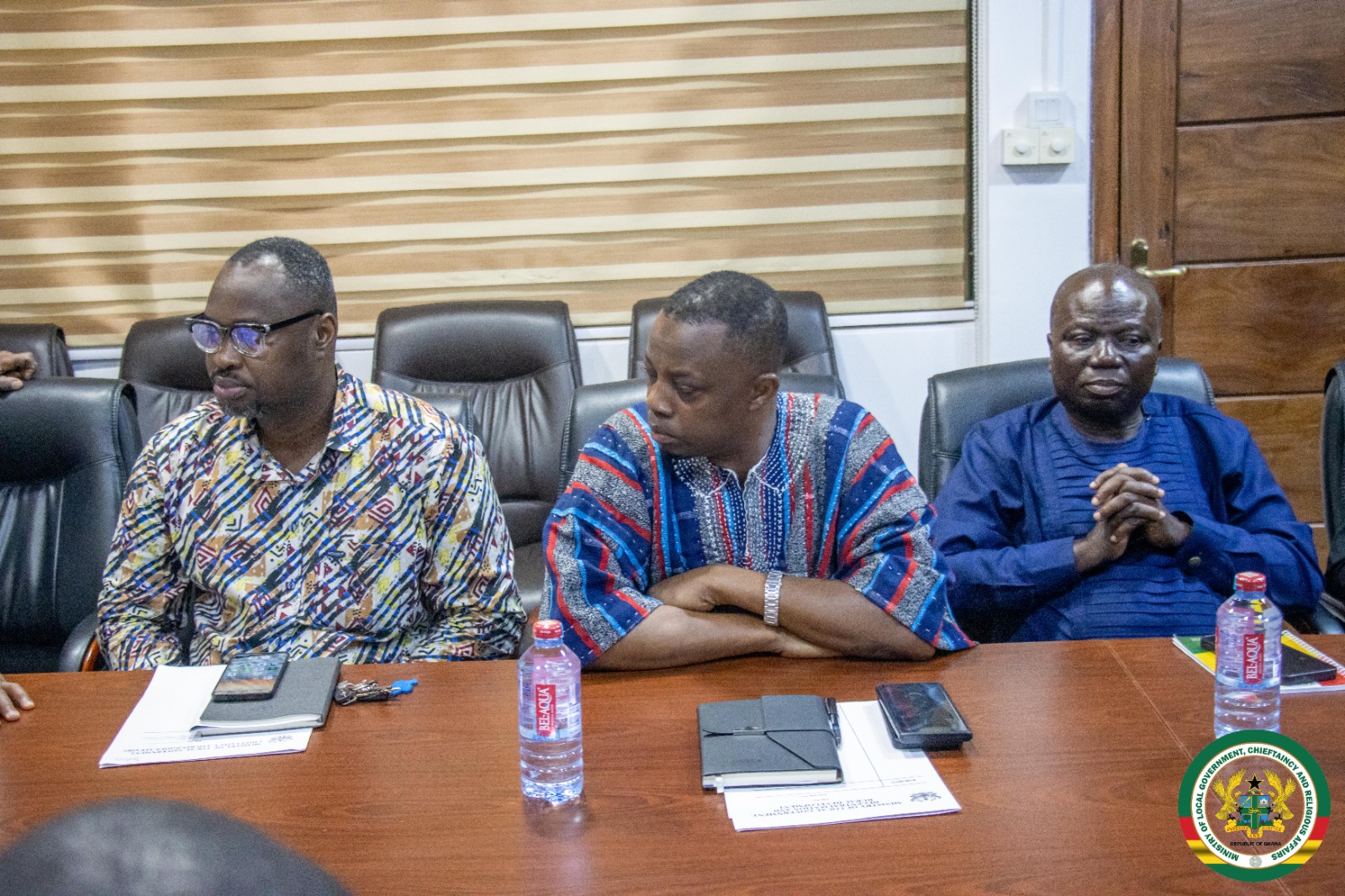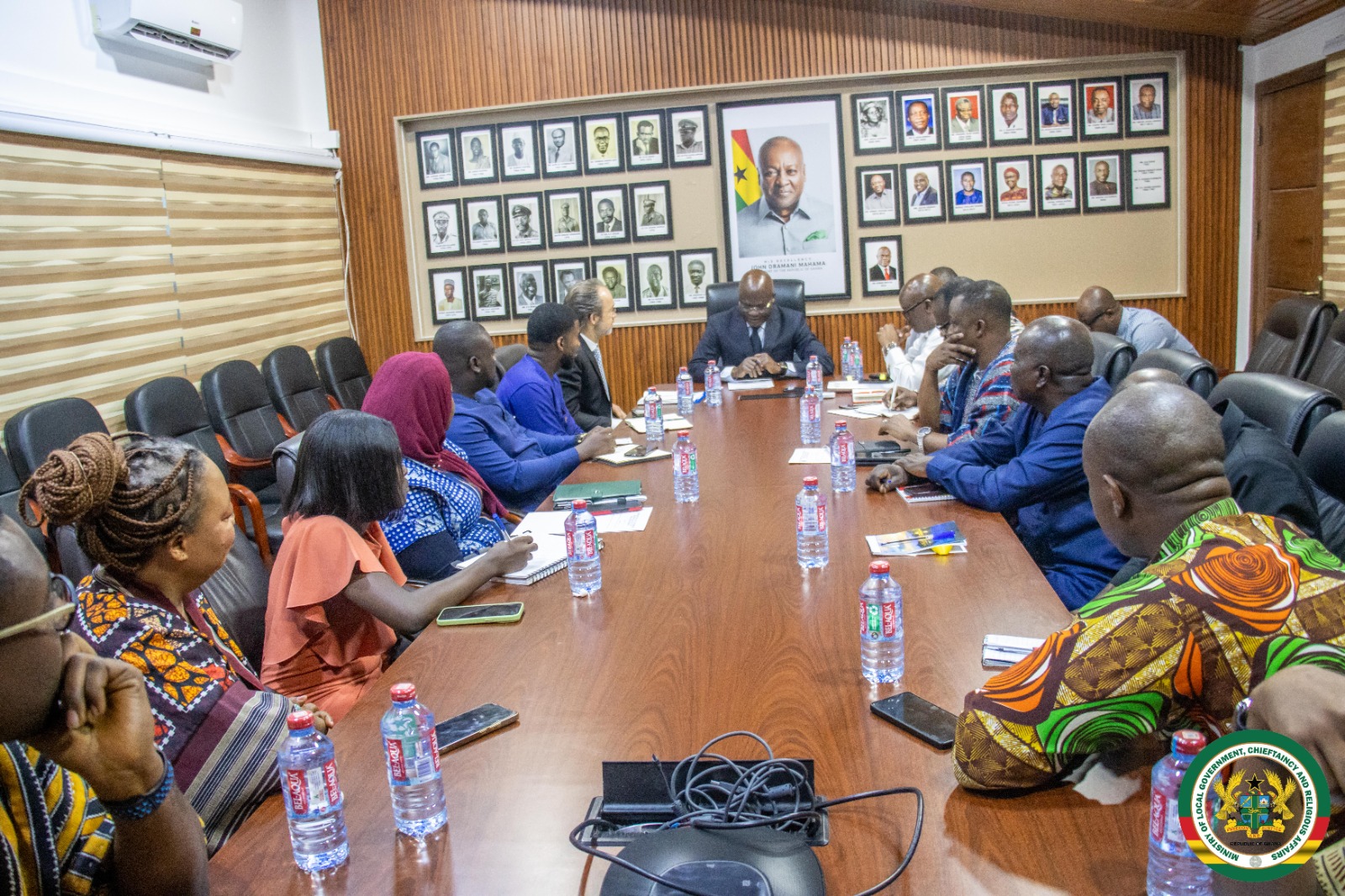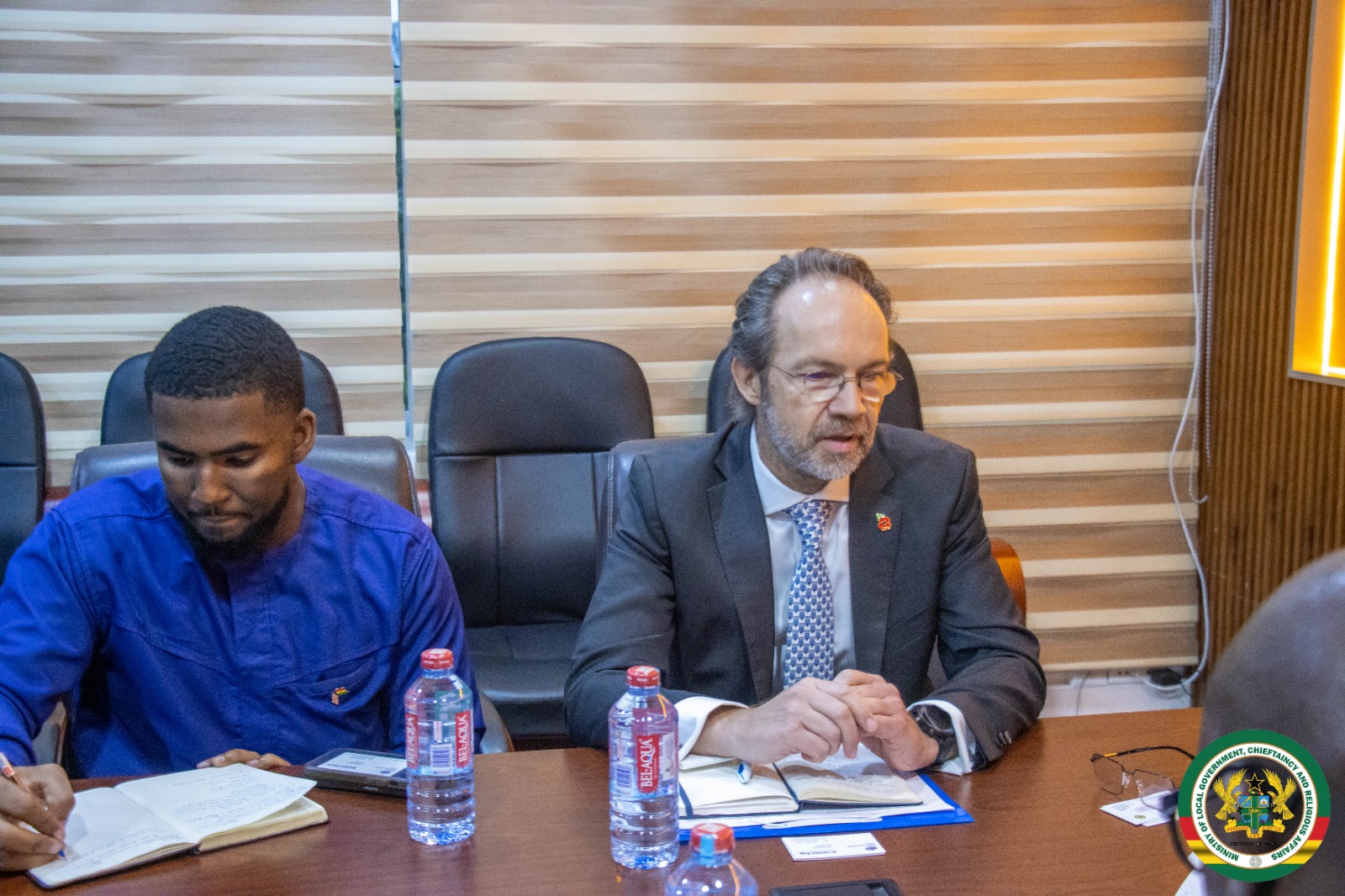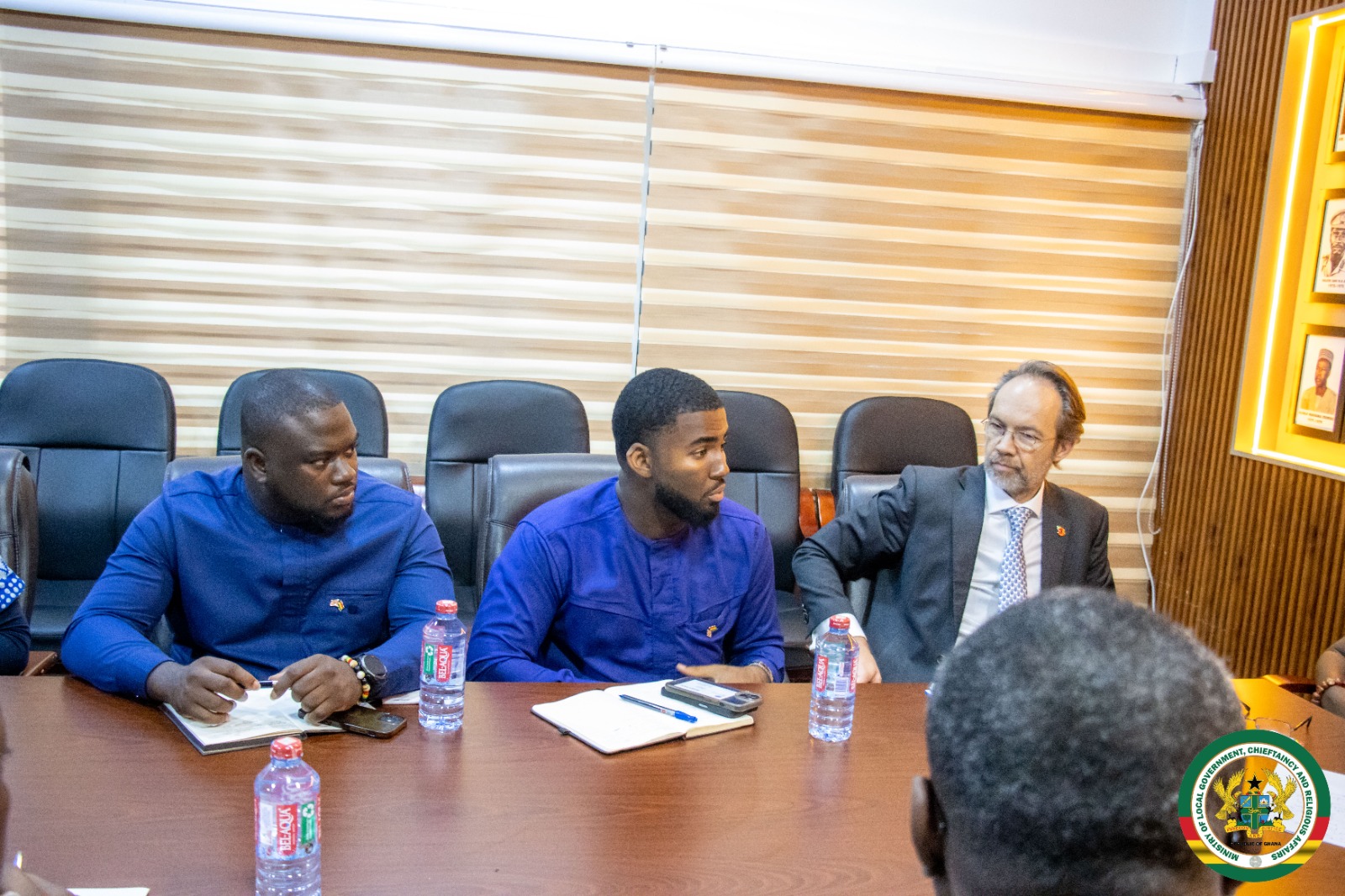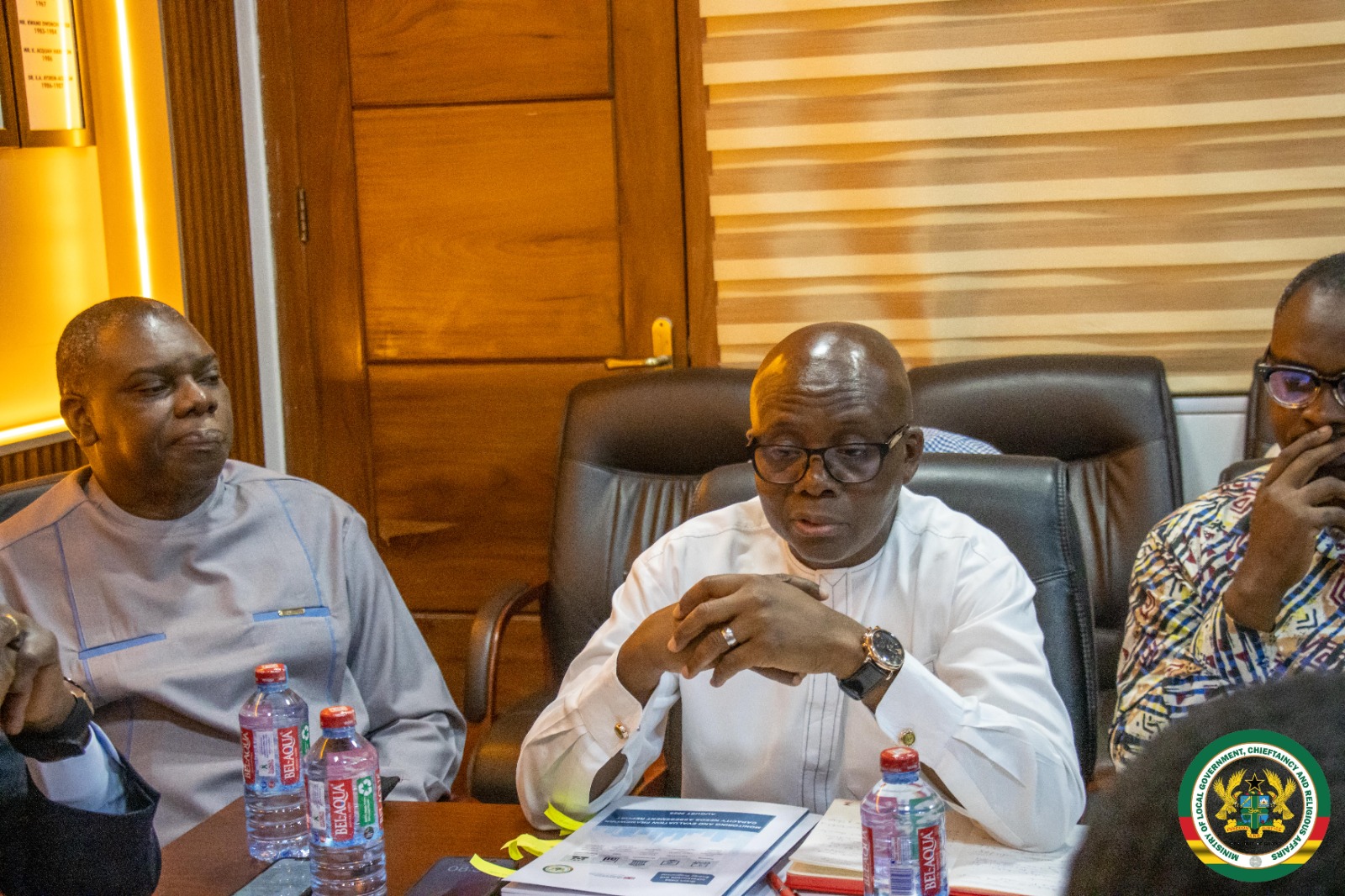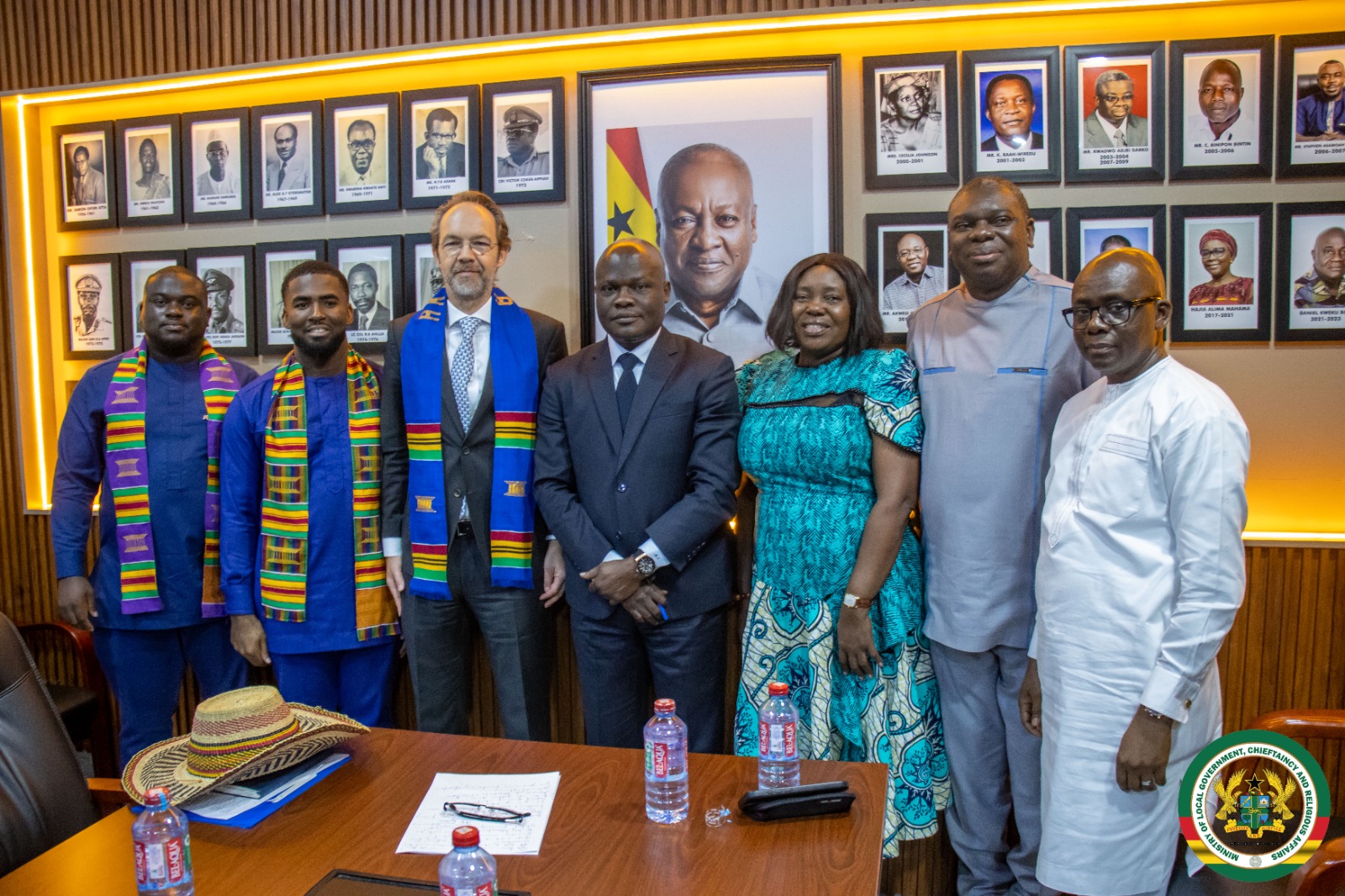The Minister for Local Government, Chieftaincy and Religious Affairs, Hon. Ahmed Ibrahim (MP), has reiterated government’s commitment to strengthening partnerships with the United Kingdom to promote sustainable urban development and climate resilience across Ghana’s cities.
He gave the assurance when the British High Commissioner to Ghana, Dr. Christian Rogg, paid a courtesy call on the Ministry on Friday, 7th November 2025to formally introduce himself to the Minister while familiarizing himself with the policies and programmes of the ministry and possible collaborations the two countries could have.
Welcoming the High Commissioner and his team, Hon. Ibrahim commended the United Kingdom for its longstanding support through the United Kingdom Foreign, Commonwealth and Development Office (FCDO), particularly under the Green Cities and Infrastructure Programme (GCIEP). He emphasized that this partnership continues to play a pivotal role in enhancing urban resilience, unlocking climate financing, and promoting sustainable infrastructure in Ghana.
According to him, the Ministry values the United Kingdom’s continuous partnership, which has aided in laying a strong foundation for sustainable city development through robust data, planning, and performance tracking tools.
He highlighted key achievements under the GCIEP, including the completion of a comprehensive Urban Baseline Assessment Report, a Monitoring and Evaluation (M&E) Framework to track urban policy outcomes, and a Capacity Needs Assessment Report to guide institutional strengthening.
The Minister further revealed that the collaboration has also supported climate risk mapping, mobilization of climate finance, and the review of faecal sludge treatment feasibility studies in Wa, Bolgatanga, Yendi, Techiman, and Sunyani with the hope of gaining additional funding from the European Union, European Investment Bank, and Invest International for project completion.
In the same spirit of progress, he said the GCIEP is also partnering with the Ministry to develop an integrated road and drainage feasibility study for the Sekondi-Takoradi Metropolitan Assembly, aimed at improving mobility, trade, and flood resilience in the twin cities.
On the way forward, Hon. Ibrahim extended an invitation to the British High Commission to join other development partners working with the Ministry in supporting the implementation of the Sustainable Cities Strategy, launched earlier this year with World Bank support, stating that, the strategy focuses on tackling challenges of rapid urbanization, including mobility, housing, waste management, spatial planning, and governance.
In his submission, the British High Commissioner to Ghana, Dr. Christian Rogg, expressed the United Kingdom’s readiness to continue its collaboration with Ghana in building resilient, inclusive, and environmentally sustainable cities, acknowledging the Ministry’s leadership in driving innovative solutions to local governance and urban development, indicating that they have also worked with other development partners towards similar development in the Northern sectors.
Source: Chantal Aidoo
Public Relations Unit, MLGCRA

